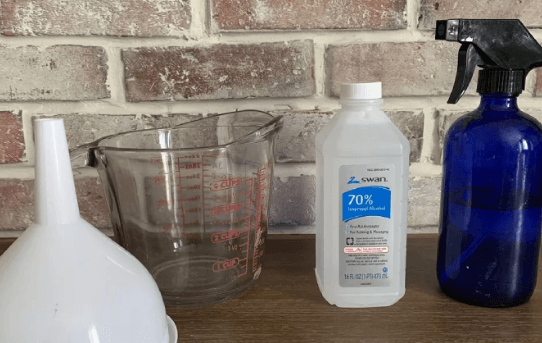
The rising concern over bed bug infestations has prompted many to explore alternative solutions, particularly homemade sprays that utilize natural ingredients. Formulating an effective bed bug spray involves understanding the properties of various essential oils and their role in pest deterrence. While the process may seem straightforward, the effectiveness hinges on precise application techniques and knowledge of the insects’ behavior. As we examine the intricacies of this eco-friendly approach, it becomes evident that a deeper understanding of the essential ingredients is crucial for achieving optimal results. What components should one prioritize for maximum efficacy?
Understanding Bed Bugs
Bed bugs (Cimex lectularius) are small, nocturnal insects that feed on the blood of humans and animals. They are characterized by their flat, reddish-brown bodies and elusive behavior, making them a significant pest in residential and commercial settings. Understanding bed bug behavior is crucial for effective management and prevention.
These insects are primarily active during the night, utilizing heat and carbon dioxide to locate their hosts. Their propensity for hiding in crevices, seams of mattresses, and furniture complicates detection and eradication efforts.
Bed bug prevention is essential to minimize infestations. Regular inspection of sleeping areas, particularly in high-risk locations such as hotels and hostels, can help identify early signs of bed bugs. Implementing protective covers for mattresses and box springs can reduce their harboring opportunities. Additionally, maintaining a clutter-free environment limits potential nesting sites, further deterring bed bugs.
Awareness of their behavior and effective preventive strategies empower individuals to take proactive measures against these pests, thus fostering a sense of freedom and control over one’s living space. Understanding bed bugs is the first step toward maintaining a bed bug-free environment.
See also: Craftsman Door Trim
Essential Ingredients
Effective homemade bed bug sprays typically incorporate a combination of essential ingredients known for their insecticidal properties, including natural oils, alcohol, and detergents. These components serve as effective natural repellents, offering an eco-friendly alternative to commercial insecticides.
Key natural oils include tea tree, lavender, and peppermint, all renowned for their ability to repel bed bugs due to their potent aromatic compounds. When used in a DIY solution, these oils not only deter pests but also leave a pleasant fragrance in the treated areas.
Alcohol, particularly isopropyl alcohol, acts as a desiccant that can dehydrate and kill bed bugs on contact. This ingredient is crucial for immediate action against visible infestations.
Additionally, mild detergents can be incorporated into the spray formulation. They help to break down the protective exoskeleton of bed bugs, enhancing the efficacy of the other ingredients.
Application Techniques
When applying homemade bed bug spray, it is essential to target key areas where these pests are likely to hide, such as seams of mattresses, cracks in furniture, and behind baseboards. Effective spray application is crucial for achieving optimal results.
Begin by thoroughly vacuuming the affected areas to remove any debris and dead bed bugs, which can hinder the effectiveness of the spray.
Utilize a fine mist spray bottle for even application, ensuring that the solution penetrates the fabric and crevices where bed bugs reside. It is advisable to conduct the spray application during the evening, as bed bugs are nocturnal and more active at night.
After the initial application, monitor the treated areas regularly. Treatment frequency is vital; reapply the spray every 7-10 days until you notice a significant reduction in bed bug activity.
Consistency in application will disrupt the life cycle of these pests and prevent reinfestation. Additionally, consider combining spray treatments with other pest control measures for a comprehensive approach to eradication.
Adhering to these techniques will empower you to reclaim your space from unwanted intruders.
Conclusion
In conclusion, the efficacy of homemade bed bug sprays composed of natural ingredients such as tea tree oil and lavender oil has garnered attention due to their insecticidal properties.
While anecdotal evidence supports these claims, scientific validation remains limited.
Further research into the specific mechanisms by which these substances affect bed bug populations could enhance understanding and practical applications.
Regular application and proper targeting of infested areas are essential for maximizing the potential of these eco-friendly solutions in bed bug management.



